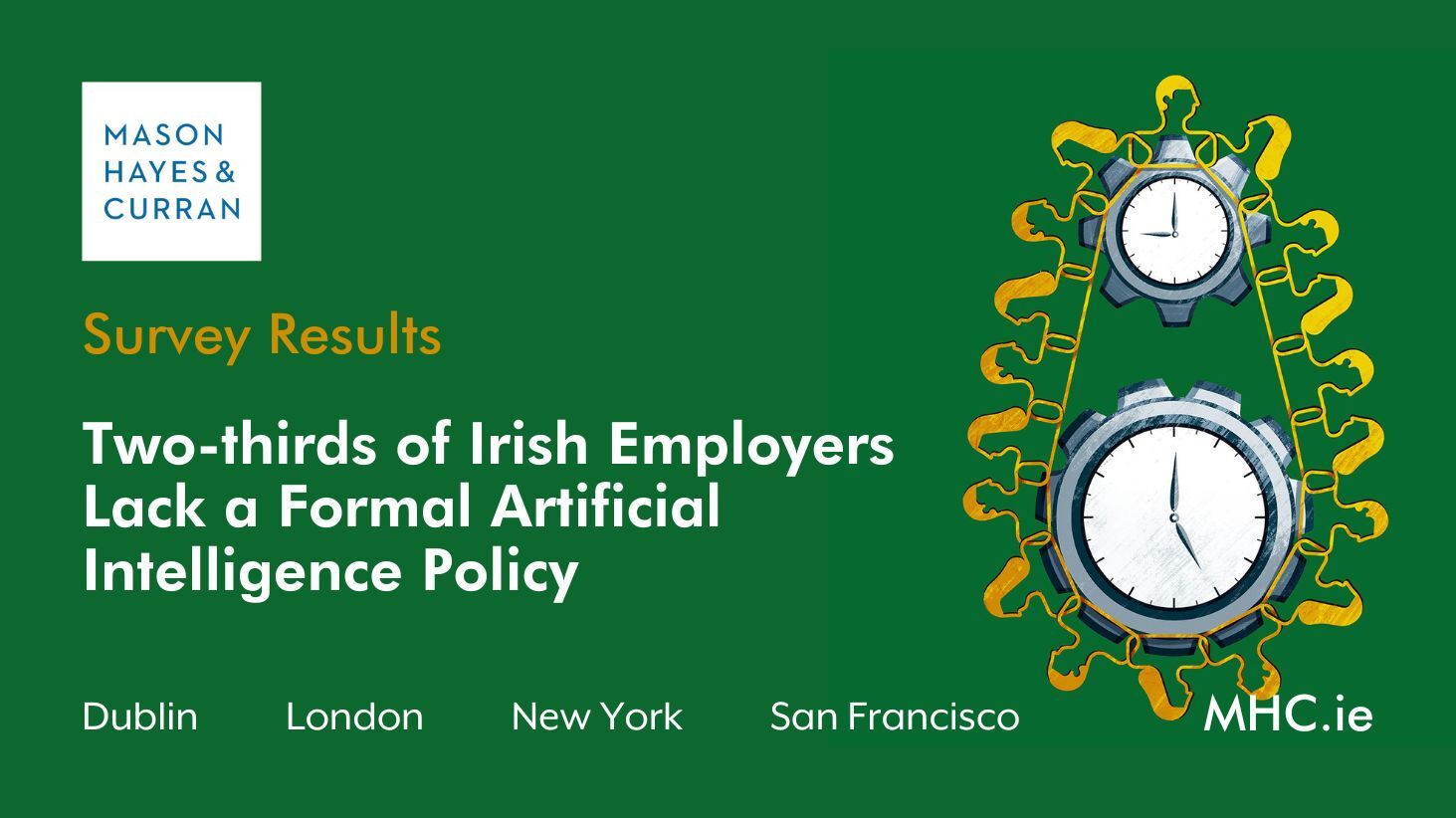Two-thirds of Irish Employers Lack a Formal AI Policy

Our latest survey has revealed that two-thirds (67%) of Irish businesses have not implemented an AI policy, despite the EU AI Act coming into force on August 1st. However, almost the same amount (64%) said that they are using AI in their HR practices to some degree.
Catherine O’Flynn, Employment Partner, commented: “The disconnect between AI use and governance could expose companies to significant legal and reputational risks. With HR AI systems now classified as 'high-risk', aligning practices with regulatory requirements is crucial. Companies that proactively address these challenges will be better positioned to leverage AI's benefits while minimising legal risks.”
The survey, which had 400 responses from employers across the public and private sectors, was conducted during a recent Employment Law webinar on ‘AI in the Workplace’.
The event explored the legal implications of the EU AI Act, which classifies certain HR AI systems - such as those used for recruitment, performance management, work allocation, and terminations - as ‘high-risk’ under the new regulation. These systems now face rigorous compliance standards, comparable to those governing medical devices.
Data protection remains a central issue, tied closely to existing GDPR obligations.
The survey identified data protection as the biggest challenge in complying with the EU AI Act in HR (43%), followed by regulatory clarity (29%) and AI bias (28%). These concerns align with the Act's stringent requirements for high-risk AI systems, which include obligations for data governance, transparency, and human oversight.
Brian McElligott, Partner and Head of AI, said: “Data protection remains a central issue, tied closely to existing GDPR obligations. The AI Act introduces new layers of complexity for high-risk AI systems used in HR. Businesses need to prioritise risk assessments, create detailed AI governance policies, and ensure their workforce is adequately trained on AI’s regulatory framework.”
Recruitment emerged as the area where AI could deliver the greatest benefits (41%), followed by work allocation (32%) and performance management (27%). However, opinions on operational efficiencies gained from AI in HR were split, with 50% of users reporting benefits and 50% seeing no improvements.
Catherine O’Flynn added: "It’s not unexpected to see mixed results at this stage of AI implementation. Realising the full potential of AI in HR requires not only careful planning but also robust data management and ongoing monitoring. Businesses must invest in these areas, particularly given the new compliance obligations imposed by the AI Act.”
Read more about the survey results on Business Plus or the RTE website. If you have a question about any of the topics covered here, don't hesitate to contact a member of our Employment Law team.
Share this:





